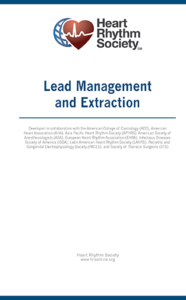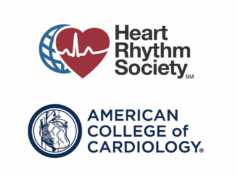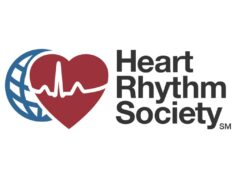 The Heart Rhythm Society (HRS) has issued an international consensus statement that comprehensively addresses lead management for patients with cardiovascular implantable electronic devices (CIEDs).
The Heart Rhythm Society (HRS) has issued an international consensus statement that comprehensively addresses lead management for patients with cardiovascular implantable electronic devices (CIEDs).
The expert consensus statement, which was presented at the 10th Asia Pacific Heart Rhythm Society (APHRS) Annual Scientific Session held in conjunction with the Annual Meeting of the Japanese Heart Rhythm Society (JHRS), is the first to have a comprehensive discussion of lead management issues, including lead extraction, and is an update to the 2009 HRS lead extraction clinical document.
The document is intended to help physicians, facilities, and other healthcare professionals involved in the care of patients with CIEDs in their decision-making process for managing leads. The authors address practical clinical guidance in the broad field of lead management, including extraction. The document includes specific recommendations in the following areas:
- Lead survival
- Existing CIED lead management
- Indications for lead extraction (Infectious)
- Indications for lead extraction (Noninfectious)
- Outcomes and follow-up
The 29-member expert group, which created the recommendations, included representatives from international professional societies focused on heart rhythm issues and other organisations representing subspecialties such as cardiac surgery, infectious diseases, anesthesiology, and pediatrics. The writing group performed literature searches and developed recommendations based on available data and commonly encountered clinical situations identified by the writing committee. Evidence was assessed by writing committee members, and the recommendations underwent a public comment period, internal review, and external peer review for further consensus.
Fred Kusumoto (Mayo Clinic, Jacksonville, USA) comments: “Lead management is important now more than ever given the growing number of implanted devices due to worldwide aging demographics, the increased clinical use of CIEDs, and the time required for technology development of devices that do not use leads. The new expert consensus statement provides a much-needed single set of recommendations that clinicians from around the world can consult, which will ultimately lead to improved patient care.”
The writing group notes that registries will be critical to further understand lead management in the setting of infection, lead failure, and changing clinical conditions. International interactions and collaboration on technique and methodology can also further help identify best practices and can contribute to the understanding of clinical outcomes in patients.
The expert consensus statement was developed in collaboration with 10 international organisations: Heart Rhythm Society (HRS), American College of Cardiology (ACC), American Heart Association (AHA), Asia Pacific Heart Rhythm Society (APHRS), American Society of Anesthesiologists (ASA), European Heart Rhythm Association (EHRA), Infectious Diseases Society of America (IDSA), Latin American Heart Rhythm Society (LAHRS), Pediatric and Congenital Electrophysiology Society (PACES), and Society of Thoracic Surgeons (STS).
The statement was published today in the online edition of HeartRhythm and is also posted on the HRS Clinical Guidelines & Documents website.









